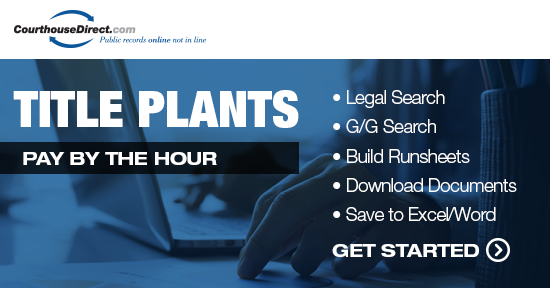 The term Abstract of Title seems to cause confusion for many people, even those in property-based industries like real estate and minerals. Most people run across the term when purchasing a home, which is a rare even in someone’s lifetime in general.
The term Abstract of Title seems to cause confusion for many people, even those in property-based industries like real estate and minerals. Most people run across the term when purchasing a home, which is a rare even in someone’s lifetime in general.
In the oil and gas industry, the abstract of title has more utility because of the volume of property deals involved. Understanding what the abstract of title can tell you can place you closer to the head of the pack when it comes to negotiating leases and other property transactions.
Defining Abstract of Title
The Abstract of Title is a document. It is more than the concept of title, which is nothing more than the idea of ownership that changes hands. The physical item denoting a change of title is the deed. The abstract of title, on the other hand, is a document that summarizes the history of a specific parcel of property, from the transitions of title to legal activity.
Investopedia puts it best:
“Abstract of Title is the brief historical overview of all the historical documentation associated with a property, including titles, transfers, and claims against the property.”
An abstract begins with the initial grant deed. From there it contains all the changes in ownership, the history of claims such as easements, encroachments, litigation, liens, tax sales, and restrictions. If you want to know if there are liens against a property that you want to purchase, read the abstract of title.
Another term you may come across is Torrens titles. A Torrens title is an alternate method of transferring land ownership. It may be used when an abstract is unavailable and the property transfer is a case for the courts. It was implemented to simplify the process of land transfers early in the 20th century but has since fallen out of favor.
In fact, the abstract of title may be one of the most crucial documents you can review before completing a land transaction.
What Does an Abstract of Title Contain?
Reading this historical document can tell you almost anything you want to know about a piece of land.
Liens, including mechanic’s liens, repair liens, second mortgages, and liens for borrowed money that used the property as collateral.
Tax liens if any previous owner skipped out on paying the property taxes. Tax liens take precedence over any other lien. If you purchase a property with a tax lien against it, you could lose it in a tax sale, even though you did nothing wrong.
Homeowner association liens, restrictions, and covenants are listed on the abstract. HOAs often have the power to place a lien against property if the dues are not paid. These organizations also have the power to govern what you can and cannot do with, to, or on a property within an HOA.
Easements such as those for utilities are reserved for the installation and maintenance of water lines, sewer lines, and electrical power lines. A utility would have every right to tear up a structure placed over an easement if repairs were required.
Consecutive grants, wills, conveyances, records, and judicial proceedings are all listed in the abstract, providing an overall legal picture of a piece of land.
The abstract also lists the public records that were searched and a list of public records that were not searched to prepare the report. The person putting this report together is called an abstractor who searches records recorded with the county recorder, registrar, circuit order, and other sources of official land documents.
You will find the recorder’s book and page number, the deed date and recording date, names of grantor and grantee, a description of the property, and everything listed above.
What Does an Abstract of Title Not Do?
An abstract is not a guarantee of a clean title. It does not make any statement as to the validity of the title. It is just a summary of records pertaining to the title and nothing more. It can and will include any errors created when the information was recorded, such as misspellings of names, incorrect dates, and other common data entry errors.
The abstract does not bring forgeries or encroachments to light. Therefore, the abstractor is only liable for damages caused by any negligence when assembling the abstract, not for any problems with the property’s documentation.
Abstract of Title, Chain of Title, Title Insurance, and Deed - Oh, My
Now you know what an abstract is, but what about these other terms? Are they interchangeable? No, no they are not.
- Chain of title refers to the formal documents of transfer and financial documents, involuntary liens, covenants, restrictions, and easements. An abstractor uses the chain of title as part of the research process and may find breaks in the title in the process.
- Title insurance is a comprehensive indemnity contract taken out by the lender or mortgagee as well as the owner to protect against unknown issues that could result in financial losses. In a reversal of most insurance policies, title insurance protects against something that has already happened but that may not be foreseen or discovered before the title was to be transferred.
- The deed, as we mentioned above, is the physical printed document that is supposed to prove legal ownership by the bearer of a piece of property. It is used to pass the element of ownership and property rights from one entity to another. It does not guarantee the title is perfect.
When you speak with others about property transactions, make sure every term is being used correctly and that you understand the nuances of each. When purchasing and leasing property, it’s essential to be precise with language to stay out of legal and financial hot water.
The next time you negotiate a lease or purchase, ask for an abstract of title if one is not provided. This report will contain most of what you need to know about a particular piece of land. However, remember that the report is not guarantee that the title to that land is clean, nor does it necessarily uncover illegalities like forged deeds.























